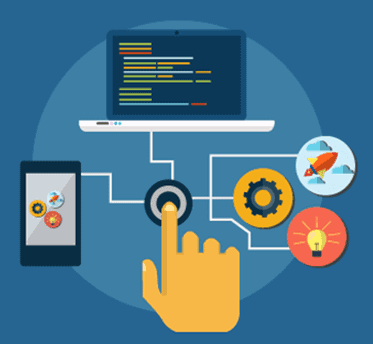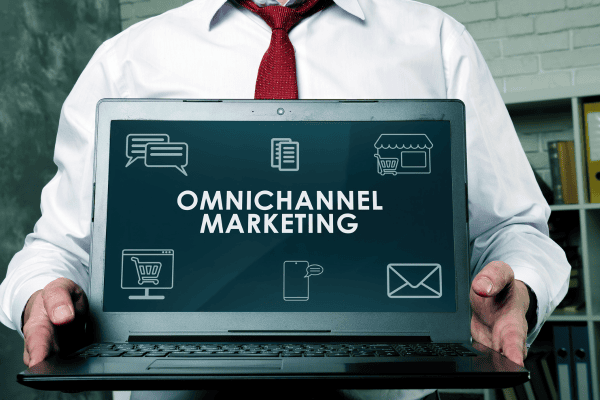Artificial Intelligence (AI) is becoming an integral part of the various processes and strategies in Digital Marketing. From driving SEO to curating content and predictive analysis, the possibilities are limitless. This article aims to provide a comprehensive look at how AI is changing the digital marketing space, its role in recent advancements, and a glimpse into the future of this disruptive technology.
Understanding the Basics of Artificial Intelligence
Artificial Intelligence (AI) constitutes the simulation of human intelligence processes by machines, especially computer systems. This technology encompasses learning, reasoning, and self-correction. At its core, AI seeks to create algorithms that enable machines to perform tasks that typically require human cognition, ranging from simple pattern recognition to complex decision-making, thereby blurring the line between human and machine capabilities.
Definition and a brief history of AI
Artificial intelligence (AI), in simple terms, refers to systems or machines that mimic human intelligence to perform tasks and can iteratively improve themselves based on the information they collect. AI’s roots can be traced back to the mid-20th century, with the seminal paper by Alan Turing in 1950, which posed the question, “Can machines think?”. This question kicked off decades of theoretical and practical research, leading to the development of AI as we know it today. Innovations such as the Turing Test, expert systems, and the introduction of machine learning have played significant roles in this evolution.
Notably, the advent of the internet and increased computational power in the late 20th and early 21st centuries significantly accelerated AI development. This pushed AI from theoretical constructs into daily applications, affecting various sectors, including marketing.
The link between AI and digital marketing
The integration of artificial intelligence into digital marketing has opened a new realm of possibilities for businesses and digital brands. AI technology enhances how marketing strategies are devised, allowing companies to analyze big data for customer segmentation and consumer behavior at unprecedented scales and speeds. AI tools are reshaping online marketing by optimizing digital shelf performance and ensuring better customer experience and engagement. This AI-driven approach helps revenue teams target their marketing efforts more effectively, leading to increased conversion rates and improved customer satisfaction.
Current trends and innovations in AI
As AI continues to evolve, several key trends and innovations are emerging within the sector. Notably, generative AI, which focuses on content generation through machine learning algorithms, has been making waves. This is alongside advancements in AI marketing tools that leverage data analysis to enhance digital shelf performance. AI is also making strides in improving customer service through chatbots and personalized email marketing strategies. These innovations exemplify how the digital marketing world is rapidly integrating AI to not only streamline operations but also enhance customer engagement and boost revenue team performance.
Another significant advancement is in AI-powered image recognition technology, which is revolutionizing content marketing and digital advertising. This, coupled with AI’s increasing role in customer segmentation through deep learning practices, showcases the rapid pace at which AI is transforming the landscape of digital marketing.
The Impact of AI on Various Aspects of Digital Marketing
The integration of Artificial Intelligence (AI) into digital marketing has transformed the landscape, offering unparalleled personalization and efficiency. AI technologies analyze vast amounts of data to predict customer behavior, automate ad targeting, and optimize marketing strategies in real-time. This evolution has not only enhanced customer experiences but also significantly improved marketers’ ROI by enabling more accurate and effective outreach strategies.
SEO and search algorithms: The role of AI
In the context of SEO and search algorithms, AI’s influence cannot be overstated. Search engines like Google now utilize AI to better understand user intent and provide more relevant search results. This shift demands a new approach from digital marketers, who must now focus on optimizing their content not just for keywords but also for relevancy and user intent. AI tools are instrumental in analyzing the vast data from search queries, thereby helping digital marketers refine their SEO strategies for better visibility and ranking on SERPs. The deployment of AI for digital marketing in this arena is revolutionizing how content is discovered and consumed online.
Content creation and curation: How AI can help
AI has greatly transformed content creation and curation, empowering marketers to produce highly targeted and personalized content at scale. AI-driven content generation tools are capable of creating content that fits the brand’s voice and aligns with customer preferences, significantly enhancing the efficiency of content marketing strategies. Furthermore, AI systems can curate relevant content for different segments of the audience, thus optimizing the customer journey across all digital channels. This not only improves engagement rates but also supports marketers in maintaining a consistent and relevant messaging strategy.
Predictive Analysis: Exploring AI’s predictive capabilities in marketing
Predictive analysis stands out as one of the most powerful aspects of AI in digital marketing. It leverages historical customer data and AI algorithms to forecast future purchasing behaviors and trends. This enables marketers to anticipate customer needs, tailor marketing strategies accordingly, and ultimately, optimize the path to purchase. By understanding and predicting consumer behavior, businesses can create more targeted, efficient, and effective marketing campaigns that resonate with their audience and improve customer satisfaction. This precise customization of the marketing mix not only increases revenue but also strengthens customer loyalty.
The integration of AI into digital marketing is not just altering existing paradigms but is also setting the stage for unprecedented innovations in how marketing reaches and engages consumers. As we continue to explore the capabilities of artificial intelligence, the marketing world stands on the brink of a transformative era powered by smarter, more responsive, and highly personalized marketing strategies.
Real-World Examples of AI in Digital Marketing
Real-world applications of AI in digital marketing can be seen in chatbot customer service tools, like those on e-commerce platforms, providing instant responses and personalized shopping advice 24/7. Additionally, AI-driven algorithms are behind the scenes of programmatic advertising, automatically purchasing ad space and optimizing ad targeting based on real-time user behaviors. These examples illustrate how AI is revolutionizing the way brands interact with consumers, making marketing efforts more targeted, efficient, and effective.
Emerging AI technologies changing how we approach digital marketing
The digital marketing landscape is rapidly evolving with the advent of artificial intelligence (AI) technologies. Businesses now leverage AI to redefine customer experiences, making them more personalized and engaging. AI’s ability in data analysis and pattern recognition is empowering digital brands to tailor their strategies like never before.
One notable example is the use of AI tools by digital shelf performance teams. These tools analyze vast amounts of data to optimize product pages on e-commerce sites. For instance, Pathmonk Accelerate, a leading AI marketing tool, enhances digital shelf presence by using smart product page optimizer algorithms. These sophisticated systems can significantly improve conversion rates and the effectiveness of revenue teams overall.
Another area where AI is making a substantial impact is in content generation. The emergence of generative AI platforms has streamlined content creation, enabling digital marketers to produce high-quality, relevant content at scale. This content is not only tailored to the audience’s preferences but also optimized for SEO, thus improving the brand’s visibility and engagement on the digital shelf.
Moving forward, AI is set to revolutionize customer service through chatbots and smart personalizers. By understanding customer data and behavior, AI can predict consumer needs and offer customized solutions instantaneously. This level of personalization significantly enhances the customer experience, fostering loyalty and trust. For brands, this means a boost in customer satisfaction and a reduction in customer service operational costs.
Transitioning to how these technologies are paving the way for future advancements, it’s evident that the role of AI in digital marketing is just beginning to unfold.
Future Predictions for AI in the Digital Marketing Landscape
As we gaze into the future, it’s clear that AI will continue to play a pivotal role in shaping digital marketing strategies. The ongoing development of AI and machine learning technologies is expected to unlock new possibilities for digital brands, further enhancing their ability to engage with customers on an individual level.
- Predictive Analysis: AI’s capability to conduct in-depth predictive analysis will become even more refined. This means that digital marketers will be able to anticipate consumer needs and market trends with greater accuracy, allowing for proactive content marketing and product development strategies.
- Seamless Customer Experience: AI will enable an even more seamless customer experience across various digital platforms. With advancements in image recognition technology and natural language processing, AI will make online interactions more intuitive and human-like, dramatically improving customer satisfaction.
- Smart Segmentation: Customer segmentation will see a significant boost with AI’s ability to analyze complex consumer data sets. This will enable revenue teams to target their campaigns more precisely, ensuring that the right message reaches the right audience at the right time.
Furthermore, AI technologies enable marketers to harness AI to fine-tune their marketing strategies. AI tools not only enhance the customer journey through personalized product recommendations and content but also streamline the optimization of each landing page, ensuring maximum engagement and conversion rate improvement.
As AI continues to evolve, its integration within the digital marketing world is expected to deepen, leading to more innovative marketing tools and strategies. This shift not only demands that digital marketers stay abreast of the latest AI technologies but also that they continuously develop their technical skills to leverage AI effectively.
The Digital Marketing Institute is already recognizing the importance of AI by incorporating it into its curriculum, offering AI digital marketing courses. This move underscores the industry’s acknowledgment of AI’s critical role in shaping the future of digital marketing. Graduates from these programs, equipped with advanced AI and machine learning knowledge, are poised to lead the charge in leveraging AI for digital marketing success.
Indeed, the potential of AI in digital marketing is vast and largely untapped. By staying informed about AI advancements and actively integrating AI tools and techniques into their strategies, digital marketers can not only enhance the digital shelf performance of their brands but also ensure a more engaging, satisfying, and personalized experience for their customers. The future of digital marketing, powered by artificial intelligence, promises a landscape of endless possibilities and opportunities for both brands and consumers alike.






